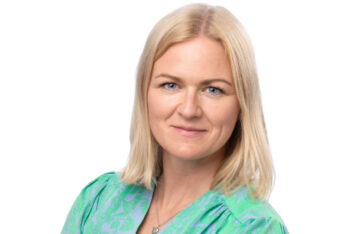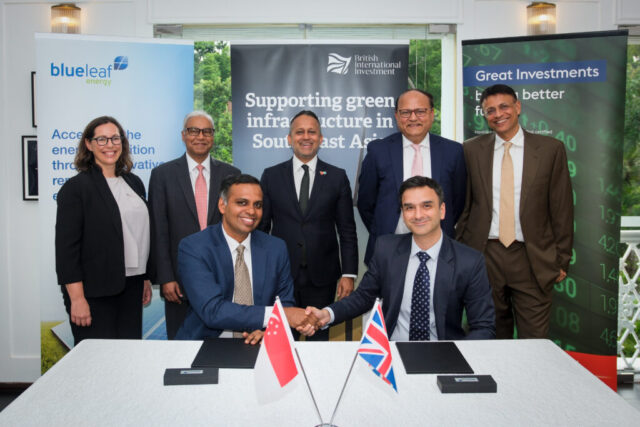Summa Equity has invested in Nutris, a Croatian factory developing sustainable protein sources from fava beans, through the €2.3bn Summa Equity Fund III.

Summa Equity has acquired a majority stake in Nutris, a Croatian factory developing sustainable plant-based protein sources, through the €2.3bn Summa Equity Fund III.
The investment was made alongside Nutris’s founder Zvonimir Sedlic, a former crop and protein trader, who acquired the remaining stake in the company, breaking from its previous owners, Danish food processing firm SiccaDania.
Founded by Sedlic in 2019, Nutris extracts plant-based proteins, starch and fibre from fava beans, which it sells in a powder-form to food manufacturers across the EU, North America, and Asia. The powders can be used in a wide range of food products, including plant-based dairy and meat alternatives, sports nutrition such as protein shakes, and convenience food products.
Speaking to Impact Investor, Jacob Frandsen, deal partner on the Nutris acquisition at Summa Equity, said: “The global food system is contributing to around 25% to 30% of global greenhouse gas emissions, so it’s a system that requires major change. One way to do that is by moving from animal to plant-based proteins.

“We were looking for assets that responded to this challenge and Nutris, which extracts proteins out of plants to create protein isolates as well as the by-products starch and fibre, fit the bill.”
Nutris said it would use the investment to scale its operations and further improve its product offering.
Focus on resource efficiency
This latest investment, which brings total investments in the fund to 12, is in line with Summa Equity’s focus on resource efficiency, one of three investment themes that the company applies across its core fund portfolio. The other themes are changing demographics, focusing on healthcare investments, and tech-enabled transformation.
“Within resource efficiency we’re looking at circularity and waste management companies, businesses driving the energy transition and sustainable mobility, and lastly, sustainable business models in the area of food, tapping into the transition from animal to plant-based ingredients, which is where Nutris comes in,” explained Frandsen.
More sustainable plant-based ingredients
Summa Equity explained that fava beans have one of the lowest carbon footprints of all plant proteins and over 90% lower emissions than whey protein, offering an alternative to soy and pea protein and meeting the growing industry and consumer demand for more sustainable plant-based options.
Emelie Norling, impact director for Summa Equity, said: “There are some plant-based proteins out there that are far from great for the environment. You really need to look closely at how these proteins are farmed, harvested and produced, to make the case that they’re better than locally produced animal proteins.”
Frandsen added that fava beans are very high in protein compared to other plants and grew well in the European climate.
Patented process
Frandsen said that Nutris has developed a patented process that improves the taste of fava-bean derived protein and has made it soluble, explaining that the company offers two types of protein, protein A and protein B.
“What is quite unique about Nutris’s process is that the end product does not have any off-taste,” he said, explaining that this was typically masked by other plant-based protein manufacturers with natural flavourings such as cocoa, vanilla and strawberry or E numbers.
“Protein B is also completely soluble in water, overcoming the problem many plant-based food manufacturers have with products that are often grainy or sandy when mixed with liquid, such as protein shakes,” he added.
Regenerative farming
Nutris works with more than 500 farmers to grow fava beans in a circular economy model with a focus on improving soil health and biodiversity, as well as boosting carbon capture.
Norling said Nutris had developed a programme for the farmers it worked with to encourage the adoption of regenerative farming practices.

“By diversifying into fava beans and other crops, Nutris is helping farmers to move away from monocultures, which over time lowers costs for farmers, making them less dependent on fertilisers and pesticides and more resilient to the impacts of climate change.”
Norling said that Nutris already measures soil and air quality and water usage and that Summa Equity is in the early stages of a project with the Stockholm Resilience Centre, a research centre on resilience and sustainability science at Stockholm University, to better understand the impacts of regenerative farming practices using data from Nutris.
“We are interested in understanding what impact regenerative farming can have both from a climate perspective but also from a biodiversity perspective,” said Norling. “The academics at the Stockholm Resilience Centre have created a tool which analyses carbon emissions, water and land use but to date they have only used it for the mining sector. We’re looking at how we can support them with data from Nutris to demonstrate the impacts of regenerative farming on the agricultural sector and develop the tool further.”





